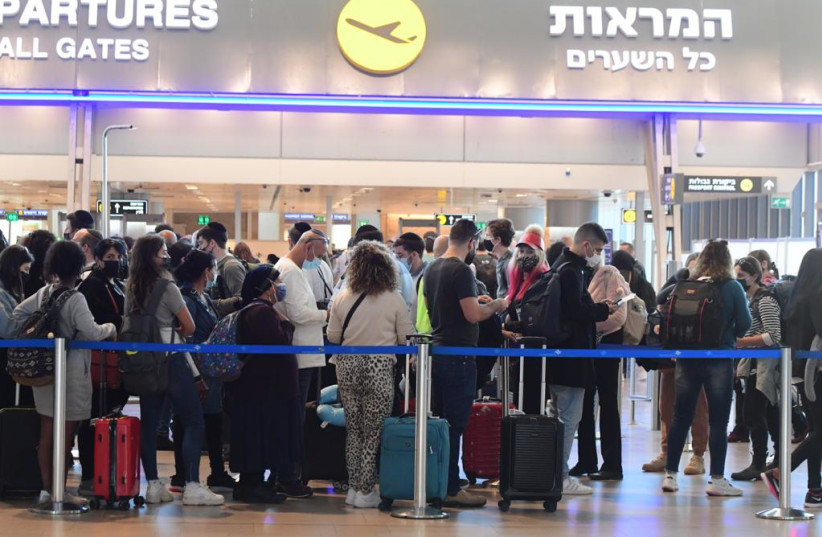Israelis are known for flouting laws and rules. However, as the number of coronavirus carriers continues to soar and the government’s new regulations essentially put the onus on Israelis themselves, it is more important than ever for each and every citizen to assume responsibility for their own health and welfare.
This begins with everyone wearing masks and extends to those eligible actually getting the second booster, and for those who might have been exposed to the virus, taking PCR or antigen tests, and, if they are positive, adhering to the isolation rules. PCR tests are more accurate in detecting the virus than antigen tests, especially those performed at home. It is up to all of us to ensure that we protect ourselves and others and that none of us violates the rules.
The new regulations come as Israel experiences the fifth wave of the coronavirus, and the government does what it can to stem the highly contagious Omicron variant. The country faces an unprecedented surge in cases. On Sunday, as Prime Minister Naftali Bennett announced a fourth vaccine shot would be made available to people over age 60 and medical staff, he also warned that as many as 50,000 Israelis could contract the virus every day in the coming weeks.
Let’s first try to be clear on the new rules that go into effect today, as reported by Jerusalem Post health correspondent Rossella Tercatin.
• When vaccinated or recovered individuals are exposed to a verified case or experience symptoms themselves, they must undergo a PCR test only if they are over 60 or have underlying medical conditions.
• Healthy vaccinated individuals may perform an at-home antigen test or undergo an antigen test at a testing station. In both cases, if they are found negative, they are exempt from quarantine. If, however, they are found positive, they will need to quarantine for 10 days. Those who perform an at-home test need to repeat it at a testing station. After 10 days, everyone can leave isolation with a doctor’s note, without the need for a further test.
• Individuals who are not vaccinated or recovered – including those who received their shots or recovery certificates more than six months earlier, people over 60, or at-risk individuals who are exposed to a verified case or present symptoms – are also required to undergo a PCR test. If the result shows they are infected, they need to isolate for 10 days, after which they can be considered recovered provided they receive approval from their doctor. If they are not infected, they need to isolate for a minimum of seven days and undergo a PCR test on the last day.
• Unvaccinated healthy individuals are required to get an antigen test at a testing station and quarantine for 10 days if positive and for a minimum of seven days if negative. In order to leave isolation, in the first case they need a doctor’s note, and in the second case, another antigen test. Someone who cares for a minor under 12 who is infected needs to stay in isolation with them, even if they are vaccinated.

Yes, it’s all a bit confusing, and the rules are continually changing, but as Health Minister Nitzan Horowitz and other health officials stressed, the new system places a higher responsibility on the individual as Israel continues to strive to find a balance between protecting public health, preserving normal life, an open economy during the pandemic, and avoiding further lockdowns.
“The Omicron wave presents a different behavior than previous ones, and it forces us to take new steps and adopt a specific perspective,” Horowitz told a news briefing on Wednesday with Health Ministry Director-General Prof. Nachman Ash, Coronavirus Commissioner Prof. Salman Zarka and Public Health Services head Dr. Sharon Alroy-Preis. “If we don’t do this, we are liable to seriously damage one of the three pillars: health, the economy or democracy.”
Whether the government’s policy is justified remains to be seen in the test of time. It is our fervent wish that health officials know what they’re doing, and as one of them said, by this time next month we’ll be over the fifth wave.
But one thing is crystal clear at this moment in time: the ball is now in the court of the citizens of Israel and everyone else in the country – from diplomats and visitors to caregivers and foreign workers.
Let’s look after ourselves and one another – for the sake of our collective health and that of the country.
